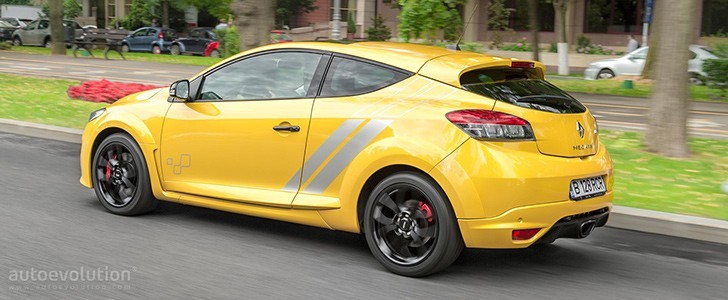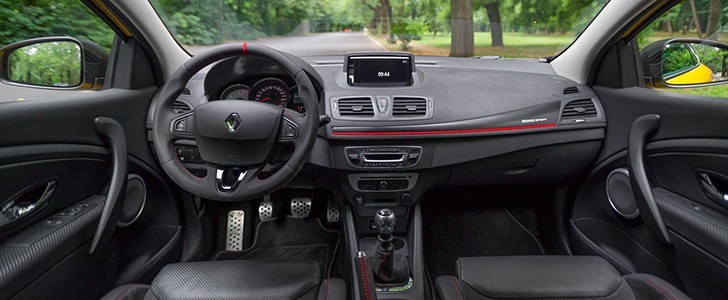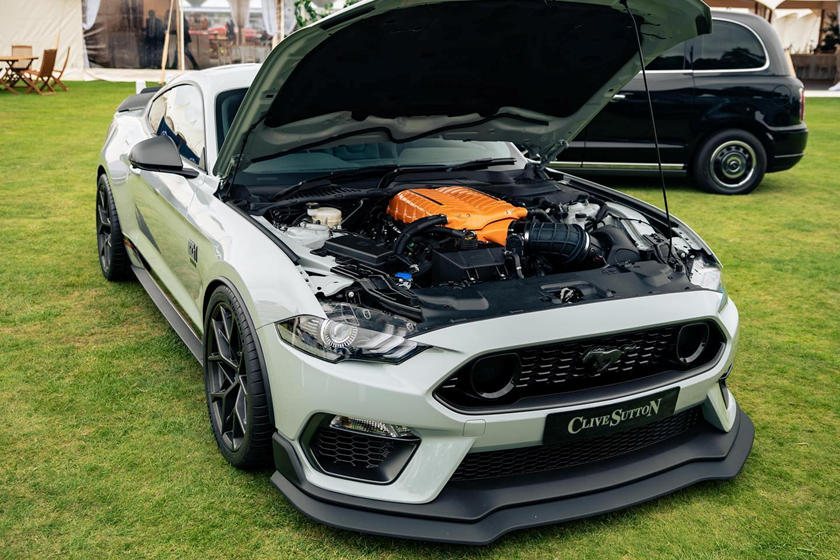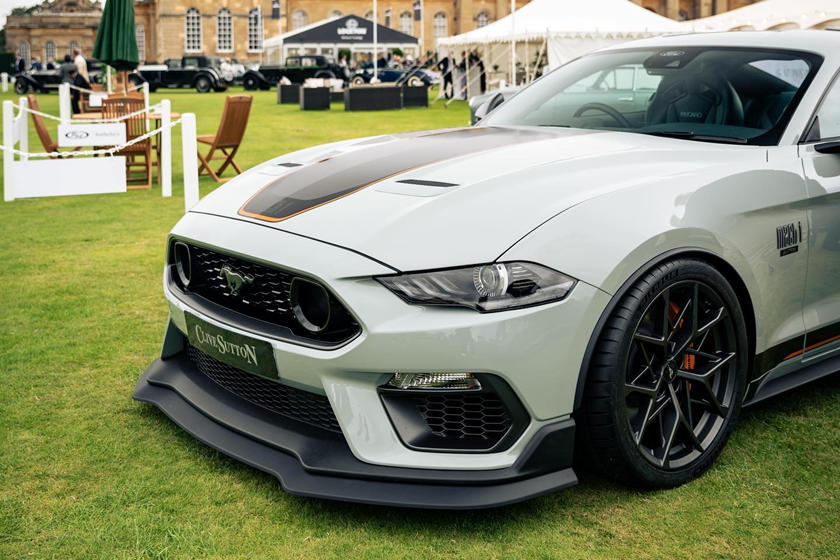One of them is the record-breaking Megane RS 275 Trophy model that used to be the fastest front-wheel drive model ever to tackle the famous Nurburgring.
That might sound like a small feat to achieve at first, if you don't know much about the Green Hell and its lap times in the first place, but you need to know that front-wheel drive cars have evolved quite a lot in recent years.
Be that due to the need of extra space inside a smaller package that led to more research in the field or due to other reasons, we can't say exactly. What we can say though is that we're glad that's the case.
In the past, FWD models didn't stand a chance against their rear-wheel drive counterparts but that's no longer the case with cars like the Seat Leon Cupra 280 or the Honda Civic Type R.
Speaking of which, this competition between these hardcore hatches brought forward numbers on the Green Hell that were never before even fathomed, let alone put in writing.
Unfortunately for the French, the Type R is currently holding the world record with its 310 HP and 7:50.63 lap time.
Don't think that the cars you get to buy are capable of such feats, though. Even with the best driver behind the wheel, you'd still need a couple of tricks to do so, tricks that cost a pretty penny and can't be bought.
In the case of the Megane RS 275 Trophy, for example, you get some options for your ride but you won't get close to the extremeness of the car that lapped the Nurburgring in 7:54.36. Fast enough for you? Well, let's put things into perspective, shall we?
Imagine this: the mighty Ferrari F430 did the same lap in 7:55 flat while the Porsche 911 GT3 (996) was just marginally faster at 7:54.00 and those two are nothing to scoff at. Looking at even more recent models, we'll find the 2013 Mercedes-Benz E63 AMG S-model coming in with a 7:55 lap time. How's that for a French FWD car? Pretty incredible, right?
Well, the designers definitely wanted you to know that the 275 Trophy is not playing around and the made it look the part. Compared to the 'regular' RS models, the 275 Trophy gets all sorts of badges all around, screaming that this is no ordinary beast.
The wheel arches are beefier while the side skirts go out to the sides a bit more. Up front, the bumper include daytime running lights made up of LEDs and the Trophy inscription on the lowest lip. There's a splitter included too that can be removed in case you want to go to the track, helping cool off the brakes.
There's a subtle RS inscription under the huge Renault logo embedded in the front fascia while, round the back, the center of the attention is the single-pipe exhaust tip from Akrapovic. This is one of the tricks Renault used to offer ten extra horsepower compared to what the 250 Cup had on the table.
To be completely honest, everything works together. The wheels hide the massive contrasting-colored brakes behind them, and everywhere we went, the Jaune Sport color of our tester demanded attention from bystanders. Not once we caught people taking photos, and it wasn't due to the extra loud exhaust either. This is probably the best looking Renault made in the last few years, despite its age.
Inside things change a lot. Everything here is aimed at weighing as little as possible. Maybe that's why everything feels incredibly cheap. The plastic used throughout has a bad feel, from the door panels to the dash. The instrument cluster is virtually unchanged from a generation ago and features the same comic sans for its lettering and numbers as it was on the second-gen Megane.
What annoyed us the most about the interior was probably the cheap carbon-fiber imitation glued everywhere. If you're going to build a car that has a decent price bump over its 'regular' version maybe you might want to take your time and invest in some proper materials for the interior. After all, that's where the owner is going to spend most of its time, right?
Luckily, the seats were comfier than we expected.
They were of Recaro origins and provided incredible levels of support while not being too harsh on our backs.
The red details that went all over and the Alcantara used here and there made a stark contrast compared to the rest of the cabin. We also loved the red seat belts. A lot.
One honorable mention also has to go to the gearshift knob, made of billet aluminum as well as the pedals that were positioned great for heel and toe maneuvers.
As for space, don't expect this car to be a wizard. There's decent room in the back for people that are not extremely tall. Access is easy in the back thanks to the reclining seats in front, and you can travel with three buddies for shorter periods of time if you want to.
That being said, you'll probably be spending time with your friends inside the car around town at most, and that makes for an exciting ride. Our tester was fitted with the optional Ohlins dampers that allow you to lower the ride height by up to 10 mm to get better performance on the track.
In fact, one of the assets of the Trophy is the fact that, when you buy this car, you also get a team of mechanics that adjust your handling settings rally-style. No, you won't get actual mechanics, but a much simpler version. A special Ohlins lug key allows you to get under your car and adjust not just the ride height, but also the bound and rebound settings.
Here's a video from Renaultsport that explains how to adjust the dampers. Moreover, the carmaker's go-fast arm can also provide bespoke settings for the Nurburgring or other types of scenarios. Mind you, these schemes also tell you how to adjust the tire pressures. You just have to ask (French).

While the Ohllins shocks will be music to the ears of track-loving people, for daily driving they are a bit of a pain in the backside. Literally. The Recaro seats were more comfortable than we expected, but the suspension of this car will make you think twice before going grocery shopping in it.
It is relentless, and you'll be feeling the smaller crack in the asphalt on every occasion and at every speed. Tram lines are not your friend, and unless you're driving on smooth tarmac, you'll be jumping up and down all the time.
Visibility is good though, and if you're to leave the car in its most tame driving mode, you won't have a problem with the clutch in any situation. The thing is, while the 275 Trophy RS feels rather fast in the standard driving mode, you'll become addicted to the Sport and RS modes as soon as you try them out.
That's because they change the character of the car by quite a lot. Sport mode is a whole new world compared to the standard setup of the transmission and engine maps. It opens a flap in the exhaust, makes the throttle a lot more sensitive and the steering gets progressively heavier.
Around town this driving mode will get you trouble. I'm saying that because RS is just insane.
Driving around town using it is just madness. Your Megane will start feeling like a mental patient that rocks back and forward of the halls of an institution, waiting to be diagnosed.
The acceleration's response is so sharp that the car will feel like it's struggling every time you try to drive slow. Furthermore, the clutch is extremely hard to control considering you now have all the 275 HP at your disposal. It's even more difficult not to floor it, considering that's how the Megane feels most comfortable in this driving mode.
That being said, in 6 seconds your license can be suspended as you'll probably be doing 62 mph (100 km/h) inside a city, something police doesn't take kindly too. You'll also be drawing attention to yourself due to the Akrapovic exhaust at the back that will be popping every time you change gear.






















